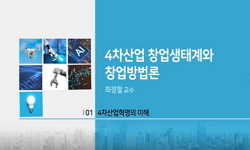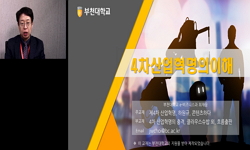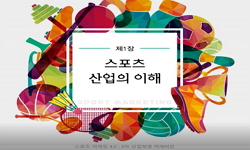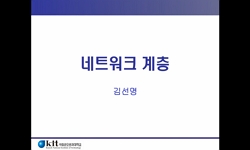4차 산업혁명의 도래로 우리 삶의 방식과 산업 구조가 IT 기반 자동화를 넘어 지능화 단계로 진화하면서 다양한 분야에서 소프트웨어 역량을 갖춘 인재를 요구하고 있다. 이러한 요구를 반영...
http://chineseinput.net/에서 pinyin(병음)방식으로 중국어를 변환할 수 있습니다.
변환된 중국어를 복사하여 사용하시면 됩니다.
- 中文 을 입력하시려면 zhongwen을 입력하시고 space를누르시면됩니다.
- 北京 을 입력하시려면 beijing을 입력하시고 space를 누르시면 됩니다.
https://www.riss.kr/link?id=A103253199
- 저자
- 발행기관
- 학술지명
- 권호사항
-
발행연도
2017
-
작성언어
Korean
- 주제어
-
등재정보
KCI등재
-
자료형태
학술저널
-
수록면
631-638(8쪽)
-
KCI 피인용횟수
3
- DOI식별코드
- 제공처
-
0
상세조회 -
0
다운로드
부가정보
국문 초록 (Abstract)
4차 산업혁명의 도래로 우리 삶의 방식과 산업 구조가 IT 기반 자동화를 넘어 지능화 단계로 진화하면서 다양한 분야에서 소프트웨어 역량을 갖춘 인재를 요구하고 있다. 이러한 요구를 반영하여 최근 초중등뿐만 아니라 대학에서도 비전공자에 대한 소프트웨어 기초 교육을 강화하고 있다. 본 연구에서는 관련 연구를 통해 비전공자의 소프트웨어 교육 목표를 컴퓨팅 사고 기반의 일반적인 문제해결능력과 자신의 학문 영역에서 소프트웨어 융합 역량을 향상시키고자 함에 두고, 이러한 목표를 달성하고자 창작로봇을 이용한 비전공자의 소프트웨어 융합 교육에 대한 방안을 제안하였다. 다양한 전공의 학생들로 구성되는 핵심교양 교과목 수강생 91명을 대상으로 창작로봇 과정과 컴퓨팅 사고 및 융합 요소와의 관련성에 기초하여 수업을 설계하고 13주 동안 연구를 수행하였다. 창작로봇을 통한 소프트웨어 융합 교육의 효과를 알아보기 위해, 수업 전 사전 진단 조사를 토대로 수업 후 학생들의 학습 성과, 창작로봇 활동 과정에 대한 만족도, 타 학문에 대한 인식의 변화를 관찰하였다. 연구의 결과, 학생들은 학습내용의 이해도, 다 학제적 협력학습에 대한 전반적인 만족도, 타 학문에 대한 이해도, 창작로봇 활동을 통한 문제해결능력에 대한 자기 평가 등 12개 문항에서 수업 전과 비교하여 자신의 능력이 향상되었다고 응답하였다.
다국어 초록 (Multilingual Abstract)
In the age of the Fourth Industrial Revolution, lifestyle and industrial structures are faced with evolution from IT-based automation to the intelligent stage, demanding talents with software capabilities in various fields. Reflecting these demands, t...
In the age of the Fourth Industrial Revolution, lifestyle and industrial structures are faced with evolution from IT-based automation to the intelligent stage, demanding talents with software capabilities in various fields. Reflecting these demands, the government has enhanced basic software education for non-majors in elementary and secondary schools as well as universities. In this study, the software convergence education of Non-Majors is proposed to improve the general problem solving ability based on computational thinking and the software convergence ability in the field of their own by developing robot activity. The subjects of this study were 91 students, who were composed of various majors. The class was designed with computing thinking, convergence elements, and creative robot activity. The study was conducted for 13 weeks. To examine the effects of software convergence education through the creative robot activity, this study observed changes in the students" learning outcomes, satisfaction with creative robot activities, and perceptions of other disciplines after class based on pre-diagnosis surveys. The survey asked 12 questions including an understanding of the learning contents, overall satisfaction with multidisciplinary collaborative learning, understanding of other disciplines, and self-evaluation of problem solving ability through creative robot activities, which were compared with that before the class. They answered that their ability was improved.
목차 (Table of Contents)
- 요약
- Abstract
- 1. 서론
- 2. 본론
- 3. 연구방법
- 요약
- Abstract
- 1. 서론
- 2. 본론
- 3. 연구방법
- 4. 연구결과
- 5. 결론
- References
참고문헌 (Reference)
1 김진오, "창작로봇(UCR) 기반 친환경 r-러닝 서비스 실천방안" 한국IT서비스학회 10 (10): 21-30, 2011
2 "Wikipedia"
3 TechTarget, "What is software?"
4 World Economic Forum, "The Future of Jobs-Employment, Skills and Workforce Strategy for the Fourth Industrial Revolution" 2016
5 Ministry of Science, ICT and Future Planning, "Software oriented university promotion plan" 2015
6 "Software Oriented Society"
7 Elliot Soloway, "Should we teach students to program?" Association for Computing Machinery (ACM) 36 (36): 21-24, 1993
8 "Robotics Design Studio"
9 Carlisle MC, "RAPTOR : Introducing Programming to Non-Majors with Flowcharts" 19 (19): 52-60, 2004
10 Ministry of Education, "Practical Arts (Technology &Home Economics) / Informatics Curriculum"
1 김진오, "창작로봇(UCR) 기반 친환경 r-러닝 서비스 실천방안" 한국IT서비스학회 10 (10): 21-30, 2011
2 "Wikipedia"
3 TechTarget, "What is software?"
4 World Economic Forum, "The Future of Jobs-Employment, Skills and Workforce Strategy for the Fourth Industrial Revolution" 2016
5 Ministry of Science, ICT and Future Planning, "Software oriented university promotion plan" 2015
6 "Software Oriented Society"
7 Elliot Soloway, "Should we teach students to program?" Association for Computing Machinery (ACM) 36 (36): 21-24, 1993
8 "Robotics Design Studio"
9 Carlisle MC, "RAPTOR : Introducing Programming to Non-Majors with Flowcharts" 19 (19): 52-60, 2004
10 Ministry of Education, "Practical Arts (Technology &Home Economics) / Informatics Curriculum"
11 Computer Science & Engineering University of Washington, "Non-Major Course Options"
12 Natalie Rusk, "New Pathways into Robotics: Strategies for Broadening Participation" Springer Nature 17 (17): 59-69, 2008
13 Ministry of Science, ICT and Future Planning, "Minister of Science, ICT and Future Planning-Software oriented university President Meeting Press release" 2016
14 Urban-Lurain M, "Is There A Role for Programming in Non-Major Computer Science Courses?" 2000
15 Korea Institute for Curriculum and Evaluation, "Introduction to the revised curriculum in 2015" 2015
16 J. H. Ku, "Instructional Design using App Inventor to Improve Computational Thinking of Non-majors Computing" 2016
17 Catlin D, "Educational Robots and Computational Thinking" 144-151, 2014
18 Henry M. Walker, "Computational thinking in a non-majors CS course requires a programming component" Association for Computing Machinery (ACM) 6 (6): 58-61, 2015
19 Jeannette M. Wing, "Computational thinking" Association for Computing Machinery (ACM) 49 (49): 33-, 2006
20 Carnegie Melon University, "Center for Computational Thinking"
21 Maeil Business News Korea, "Career Analysis of 140Global Venture CEOs"
22 Boston University Department of Computer Science, "CS for Non-Majors"
23 Committee on Information Technology Literacy, "Being fluent with information technology" National Academy Press 1999
24 J. R. Yun, "4th Industrial Revolution and Soft Power" 167 : 4-7, 2016
동일학술지(권/호) 다른 논문
-
콘크리트 손상 소성모델을 이용한 FRP-콘크리트 합성보의 비선형 유한요소해석에서 여러 변수들의 영향
- 한국산학기술학회
- 유승운(Seung-Woon Yoo)
- 2017
- KCI등재
-
- 한국산학기술학회
- 윤현중(Hyun Joong Yoon)
- 2017
- KCI등재
-
은 나노입자가 분산된 Honeycomb-patterned 수지 합성에 대한 연구
- 한국산학기술학회
- 이동창(Dong Chang Lee)
- 2017
- KCI등재
-
혼합냉매(R-290/R-32)를 사용하는 소프트 아이스크림 제조기의 성능 특성에 관한 연구
- 한국산학기술학회
- 김내현(Nea-Hyun Kim)
- 2017
- KCI등재
분석정보
인용정보 인용지수 설명보기
학술지 이력
| 연월일 | 이력구분 | 이력상세 | 등재구분 |
|---|---|---|---|
| 2026 | 평가예정 | 재인증평가 신청대상 (재인증) | |
| 2020-01-01 | 평가 | 등재학술지 유지 (재인증) |  |
| 2017-07-01 | 평가 | 등재후보로 하락(현장점검) (기타) |  |
| 2017-07-01 | 평가 | 등재학술지 선정 (계속평가) |  |
| 2015-01-01 | 평가 | 등재학술지 유지 (등재유지) |  |
| 2011-01-01 | 평가 | 등재학술지 유지 (등재유지) |  |
| 2008-01-01 | 평가 | 등재학술지 선정 (등재후보2차) |  |
| 2007-08-28 | 학술지등록 | 한글명 : 한국산학기술학회논문지외국어명 : Journal of Korea Academia-Industrial cooperation Society |  |
| 2007-07-06 | 학회명변경 | 영문명 : The Korean Academic Inderstrial Society -> The Korea Academia-Industrial cooperation Society |  |
| 2007-01-01 | 평가 | 등재후보 1차 PASS (등재후보1차) |  |
| 2005-01-01 | 평가 | 등재후보학술지 선정 (신규평가) |  |
학술지 인용정보
| 기준연도 | WOS-KCI 통합IF(2년) | KCIF(2년) | KCIF(3년) |
|---|---|---|---|
| 2016 | 0.68 | 0.68 | 0.68 |
| KCIF(4년) | KCIF(5년) | 중심성지수(3년) | 즉시성지수 |
| 0.66 | 0.61 | 0.842 | 0.23 |





 ScienceON
ScienceON DBpia
DBpia






